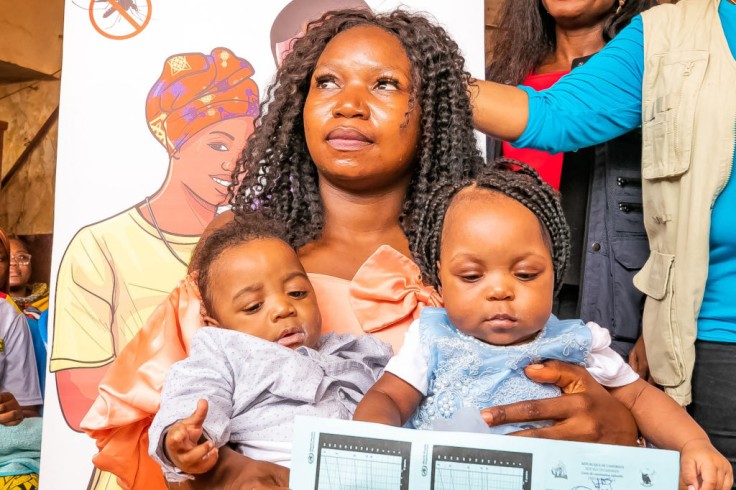
The first malaria vaccine is rolling out for children in Cameroon, Africa.
Cameroon is conducting the first-ever malaria vaccine rollout for their children to combat the fatal effects of malaria.
Cameroon has started administering the RTS,S vaccine without cost to infants up to six months old. The first jab of the malaria vaccine was administered to an infant baby girl named Daniella at a healthcare center near Yaoundé this Monday.
First Malaria Vaccine Rollout for Children in Cameroon, Africa
The World Health Organization (WHO) reported that in Africa, malaria claims 600,000 lives annually, with children under five years accounting for approximately 80% of these fatalities.
Cameroon has the distinction of being the first nation to regularly vaccinate children against malaria as part of a broader African rollout program. This campaign, which began on Monday, is being hailed as a significant step in the long-standing battle against malaria, a disease prevalent in Africa and responsible for 95% of global malaria deaths.
Aurelia Nguyen, the chief program officer at the Gavi vaccines alliance, emphasized the vaccine's critical role in saving lives and alleviating the burden on families and healthcare systems. Gavi is actively supporting Cameroon in obtaining these vaccines.
Aiming to reach an ambitious target, Cameroon plans to vaccinate approximately 250,000 children within this and the following years. Gavi is also collaborating with 20 other African countries to facilitate access to the vaccine, with a goal of immunizing over 6 million children by 2025.
In Africa, malaria, a parasitic disease, leads to about 250 million cases and 600,000 deaths each year, predominantly affecting young children.
Children's Malaria Prevention
Aurelia Nguyen, serving as the Chief Program Officer at the Gavi Vaccines Alliance, has voiced her optimism about the impactful role of Cameroon's new vaccination program. Gavi is notably instrumental in supporting Cameroon's efforts to secure the necessary doses of the vaccine.
Cameroon is preparing to deploy Mosquirix, one of two malaria vaccines recently approved for use.
The World Health Organization, acknowledging certain limitations of the vaccine, endorsed it two years ago for its ability to significantly reduce the number of severe malaria cases and hospital admissions.
Manufactured by GlaxoSmithKline, the Mosquirix vaccine shows about a 30% efficacy rate and necessitates a course of four doses. Notably, the vaccine's effectiveness diminishes after several months. This vaccine has been rigorously tested across the African continent and has already been utilized in pilot programs in three distinct countries.
Due to production constraints, GlaxoSmithKline can produce only about 15 million doses of Mosquirix each year. This limitation has prompted some health specialists to turn their attention to a second malaria vaccine, developed by Oxford University and also sanctioned by the WHO, as a more viable option.
This alternative vaccine is less expensive, and requires fewer doses, as the Serum Institute of India has claimed the capacity to manufacture up to 200 million doses of it annually.
Nguyen is hopeful that enough of the Oxford vaccine will be available to commence vaccination campaigns later this year.
It is crucial to remember, though, that neither Mosquirix nor the Oxford vaccine is capable of completely halting the spread of malaria. As such, continued reliance on other preventive strategies like the use of bed nets and insecticide spraying is essential in combating the disease.
Malaria is predominantly transmitted to humans through the bite of infected mosquitoes, and it manifests in symptoms that include fever, headaches, and chills.
Related Article : Kyte Baby in Hot Water Over Refusing Maternity Leave to NICU Mom